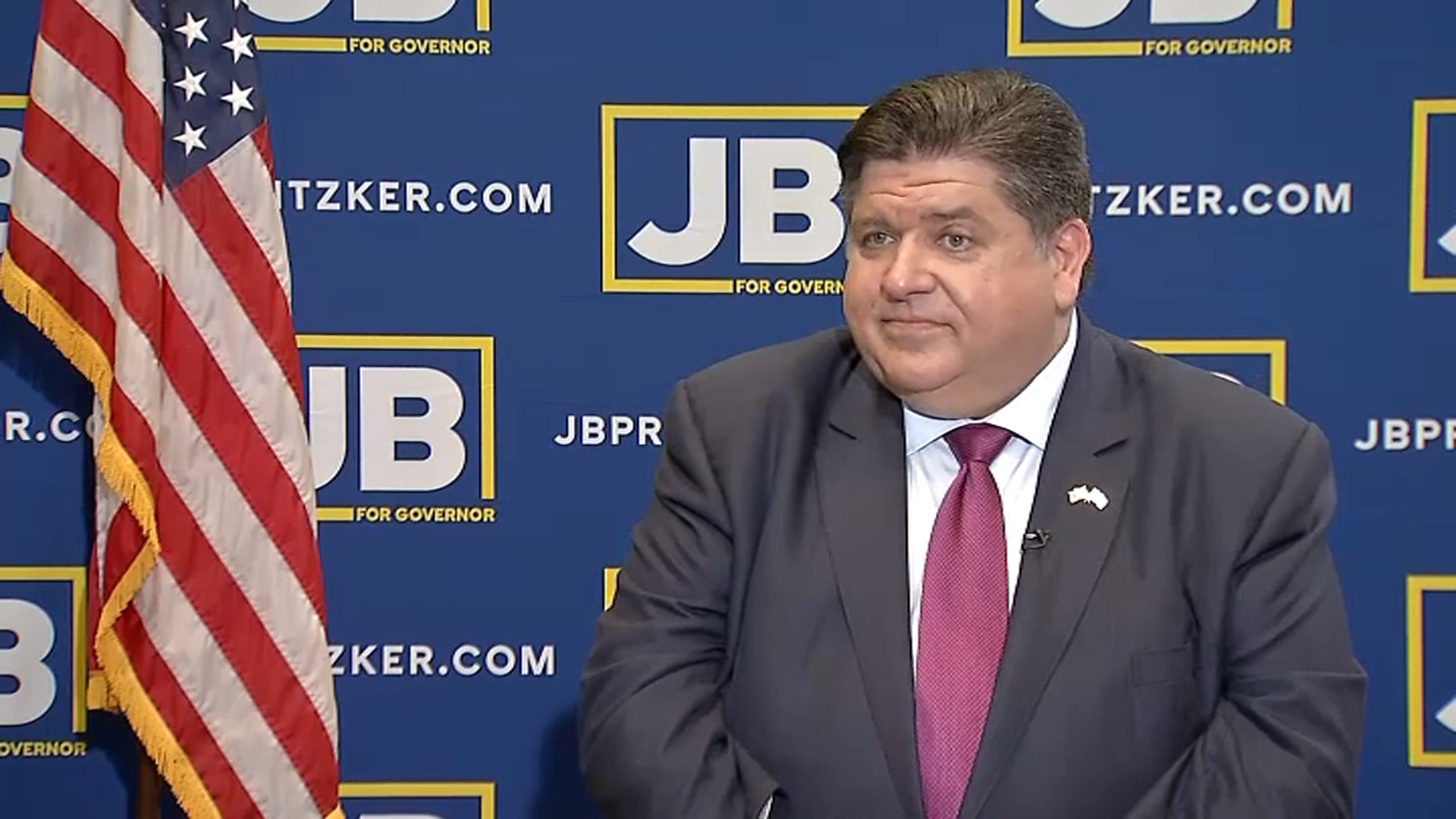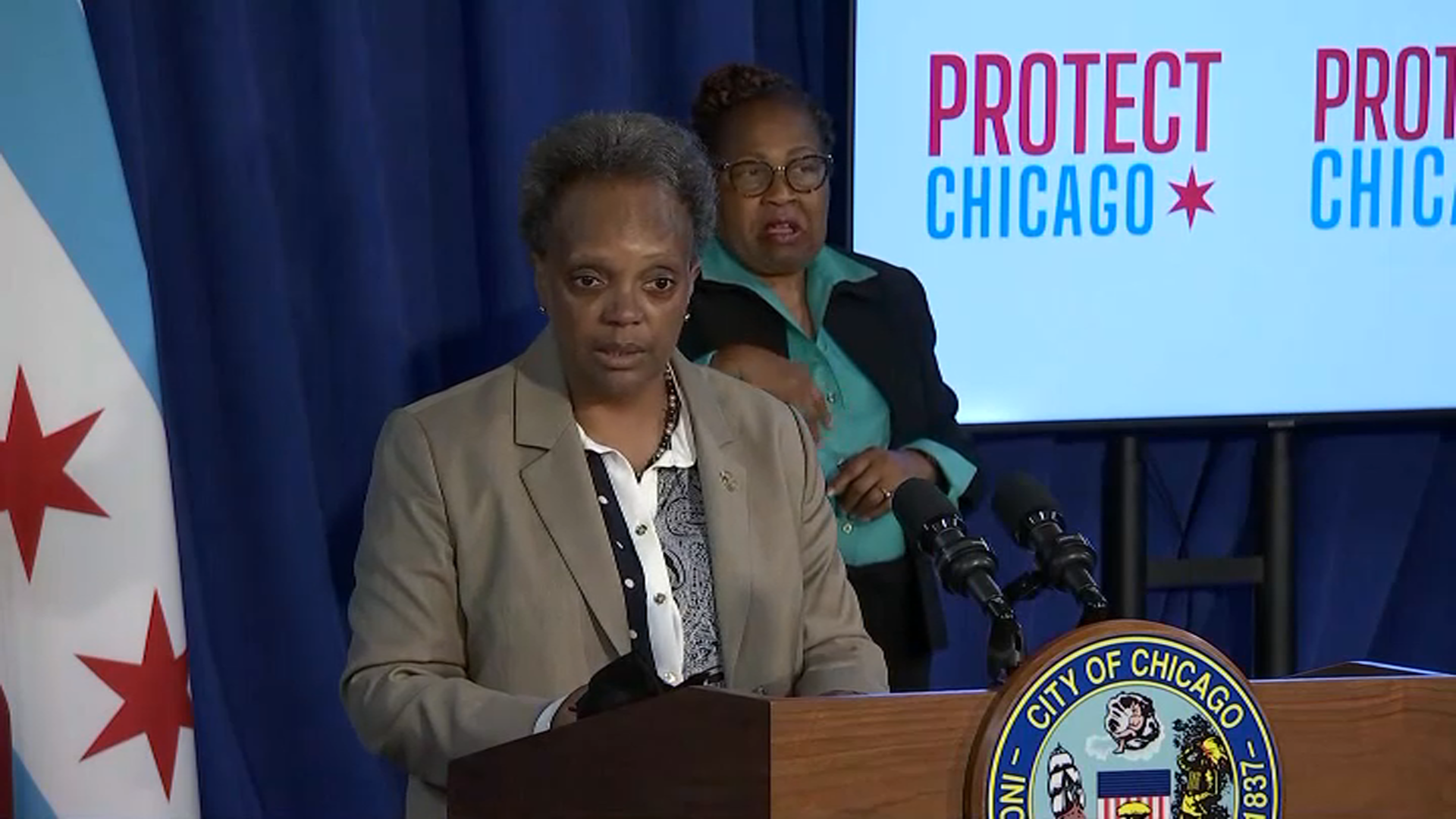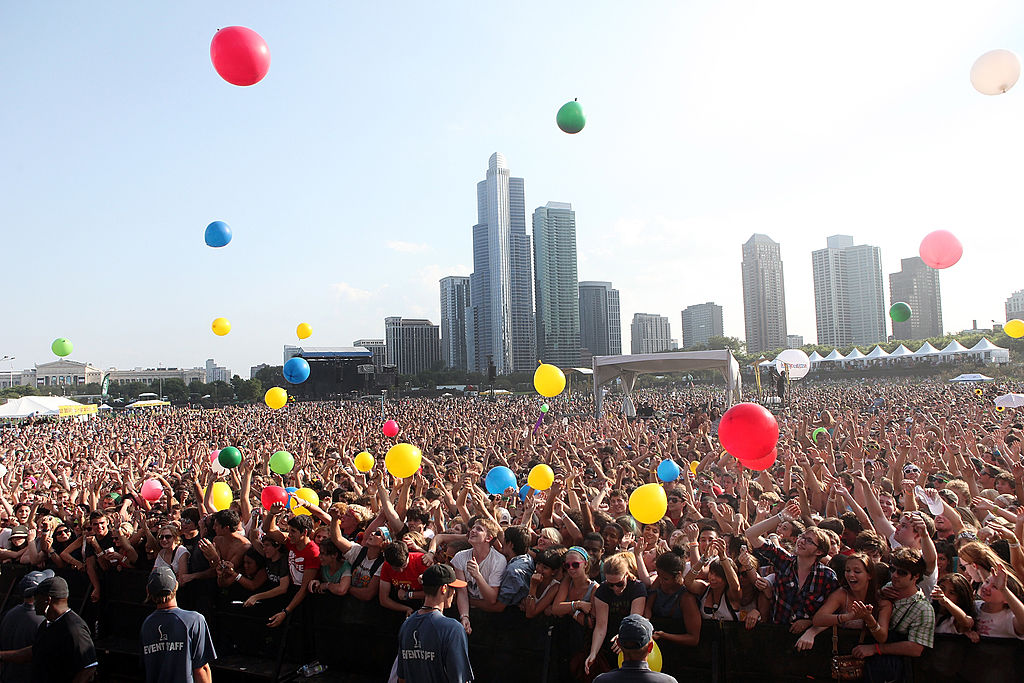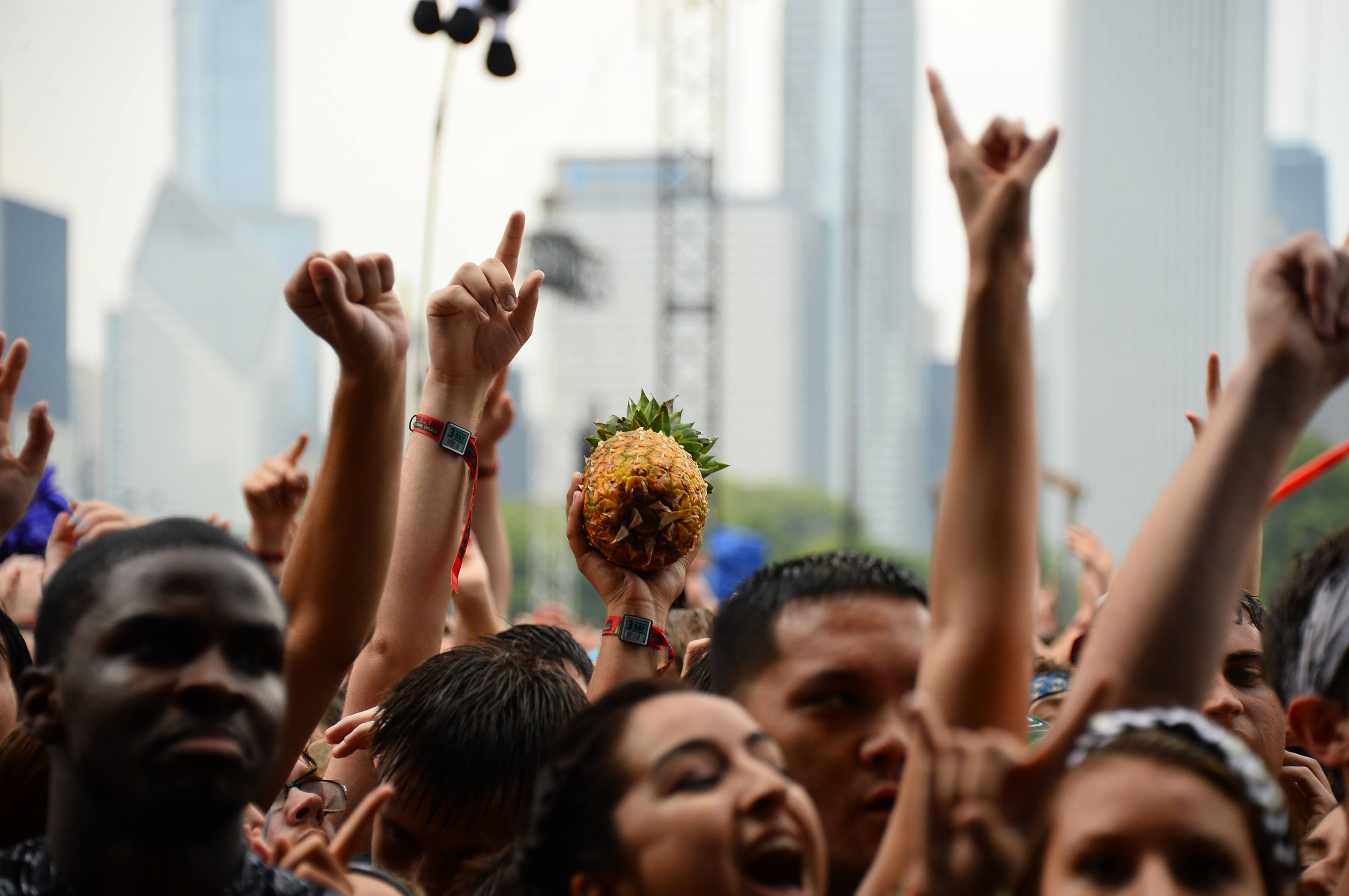Lollapalooza, one of Chicago's biggest summer events, is set to return next weekend with new health protocols due to the COVID-19 pandemic, but as Chicago's COVID numbers rise again, are city officials concerned?
The city's largest music festival will be held at full capacity from July 29 to Aug. 1. It comes at a time when the city is seeing its average daily number of new cases more than double in a matter of weeks.
Still, Chicago Mayor Lori Lightfoot and the city's top doctor both doubled down on their support of the event during a coronavirus update Tuesday.
"As you know from the time that it was first announced, we were really pleased to partner with Lollapalooza with their decision to require vaccination or negative tests for attendees and that certainly adds a level of complexity to the situation, but we want people to have a good time and we want this to be as safe as it can be," Chicago Department of Public Health Commissioner Dr. Allison Arwady said. "And so certainly we'll be watching that just as we do any other gathering, but I am more concerned about the many people who have not chosen the COVID vaccine."
Feeling out of the loop? We'll catch you up on the Chicago news you need to know. Sign up for the weekly Chicago Catch-Up newsletter here.
When asked if she regretted allowing the major outdoor music festival to go on, Lightfoot, who used the press conference to warn residents about the potential for heightened mitigations if metrics continue to spike, said no.
"I think we made the best decision that we could as always, based upon the data and based upon our projections and modeling," she said. "We felt very comfortable on June 11, which was the date, fully opening up the city. We had been working towards that point, looking at trends in the data. So no, I feel like we made the right decisions, but we're sounding the alarm today because we're starting to see this uptick."
To enter Lollapalooza, concert-goers must provide a printed copy of the COVID vaccine card, vaccine record or negative coronavirus test within 72 hours of entering.
For those who are not vaccinated against COVID-19, a mask is required while inside the festival at all times.
"You need to make sure that you are bringing your proof of vaccination, or your proof of a negative test," Arwady said. "Reminder actually from the FBI on this that if you make or buy a fake COVID-19 vaccination record card, you are not only endangering yourself and those around you, but you are breaking the law, and there have been investigations into situations where we've seen some of that. So we're looking forward to Lollapalooza, the great majority of folks who are coming, we expect are vaccinated, and we're doing everything we can to make this as safe as we can, but if you are not vaccinated you also need to wear a mask in that setting."
If a person tests positive for COVID within 72 hours of the festival, organizers said the individual is allowed a refund by sending the order number and ticket details to info@lollapalooza.com.
Lollapalooza's lineup for the 2021 festival in Chicago's Grant Park this summer includes headliners like the Foo Fighters, Post Malone, Tyler the Creator and Miley Cyrus.
Chicago's average daily number of new cases is up to 90 per day - a 69% increase over last week.
The city's average daily case rate was at 41 per day the week before that, meaning it's more than doubled in roughly two weeks - though it is still significantly lower than the more than 700 cases per day the city was seeing earlier this year and last, before vaccines were widely available.
Hospitalizations and deaths are down in Chicago - 11% and 13%, respectively, since last week - but the positivity rate in testing is up to 1.5% from 1% last week.
Arwady noted that she expects the delta variant will be the dominant variant in Chicago by next month "for sure."
Public health officials in Chicago and around the world have warned about the more transmissible delta variant, urging those who have not yet gotten vaccinated to do so.
As of Tuesday, more than 2.8 million vaccine doses have been administered in Chicago, with 51.3% of Chicagoans fully vaccinated and 57.3% with at least one dose, according to the city's data.
"We can't allow it to spread further or faster than it already has," Lightfoot said. "And it already has incredible momentum. If we don't stall this, we'll have to wait that much longer to be able to formally turn the page on COVID-19 and put this pit pandemic in the past, in the rearview mirror."





